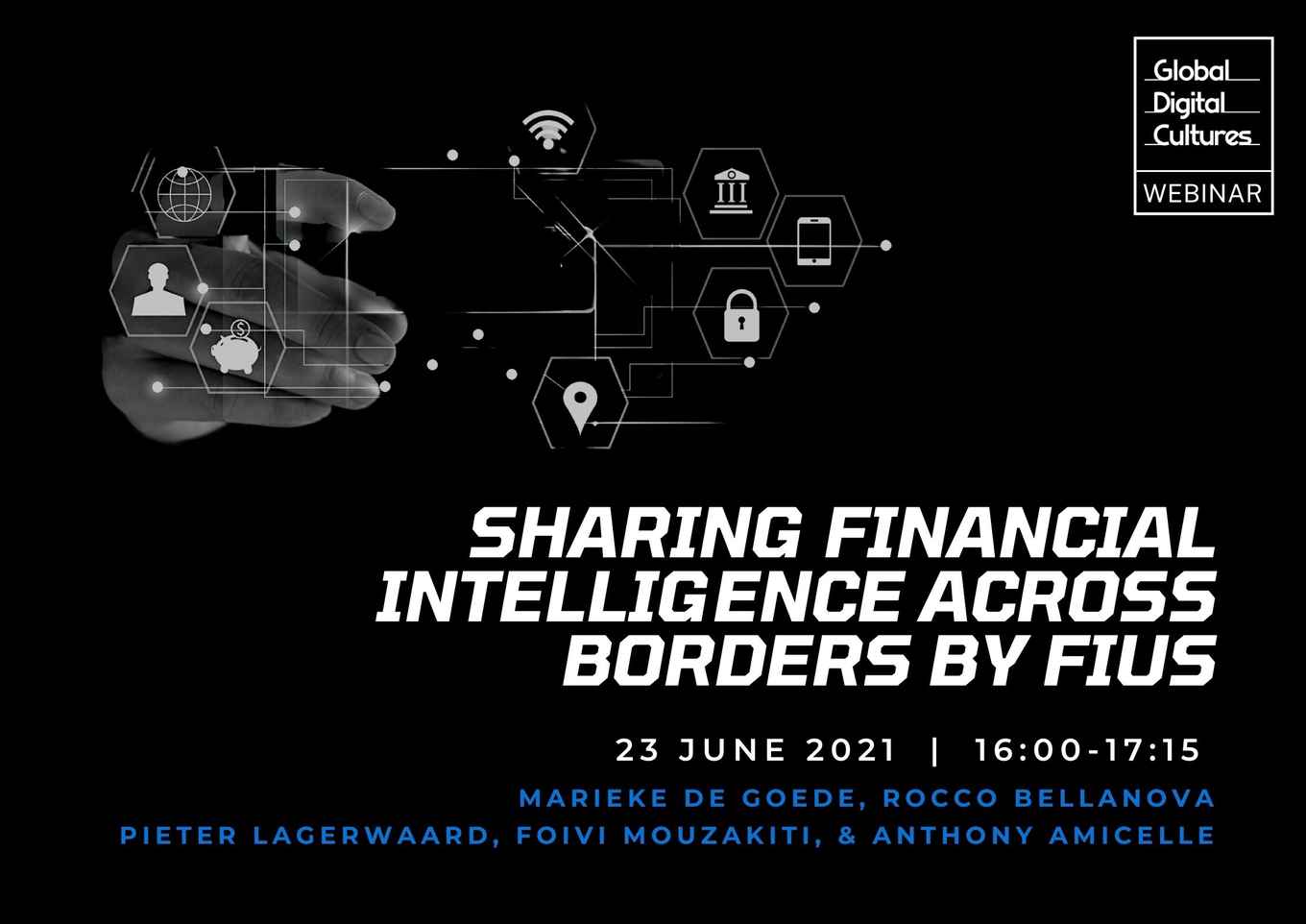Sharing Financial Intelligence Across Borders by FIUs
23 June 2021

Welcoming remarks:
Marieke de Goede is Professor of Political Science at the University of Amsterdam, and Scientific Director of the Amsterdam Institute for Social Science Research. She is Principal Investigator of the FOLLOW project. She has researched European security practices for over 15 years, with a focus on the politics of preemption in countering terrorism, financial intelligence and the role of banks in security. Her work has been published in i.a. European Journal of International Relations, Environment and Planning D: Society and Space, and Political Geography.
Chair:
Rocco Bellanova is a post-doctoral researcher and visiting professor at the Université Saint-Louis – Bruxelles, and a research associate at the University of Amsterdam (UvA). His research mainly focuses on European data-driven security practices and the role played by data protection in their governance. His work sits at the intersection of politics, law, and science & technology studies. He holds a double PhD in Political & Social Sciences and in Law, which has been awarded in 2014 by the Université Saint-Louis-Bruxelles and the Vrije Universiteit Brussel. Between 2013 and 2016 he worked at the Peace Research Institute Oslo (PRIO) and, between 2017 and 2020, at the University of Amsterdam (UvA).
Panelists:
Pieter Lagerwaard is a PhD Candidate in the FOLLOW project. He aims to understand the European landscape of Financial Intelligence Units (FIUs) and how they engage in Counter Terrorism Finance (CTF) practices. By focusing on the daily practices of financial intelligence professionals he hopes to unpack and bring to the fore the perspectives of professionals themselves and the daily dilemma’s they face on such topics as societal expectations, privacy considerations, technological restrictions, and other practice-related challenges.
Foivi Mouzakiti is a lecturer in law at the Department of Law and Criminology of Royal Holloway, University of London. She holds a Master of Laws from University College London (2014) and a PhD from Queen Mary, University of London (2021). Her doctoral thesis, entitled ‘Financial surveillance, money laundering and terrorist financing in the EU: The case of the Financial Intelligence Units’ examined the impact of the legal framework that governs the production and dissemination of financial intelligence on the fundamental rights to privacy and data protection.
Anthony Amicelle is a lecturer at Sciences Po Bordeaux and an affiliated professor at the University of Montreal. He is a researcher at the Centre Emile Durkheim and an associate researcher at the Center for International Studies (CERI-Sciences Po Paris) and the Center for Sociological Research on Law and Penal Institutions (Cesdip). His work focuses on the contemporary transformation of policing, on international policies against economic and financial crime, and on mobility control technologies from a comparative perspective (transnational circulation of people, capital, goods and digital data). He recently published: Amicelle, A. & Grondin, D. (2021). 'Algorithms as Suspecting Machines: Financial Surveillance for Security Intelligence'. In David Lyon & David Murakami Wood. Big Data Surveillance and Security Intelligence. Vancouver : UBC Pres ; Amicelle, A. (2020). 'Right of Entry: The Struggle over Recognition in the World of Intelligence'. Political Anthropological Research on International Social Sciences, 1(2): 243-272; Amicelle, A. et al. (eds., 2020). The Policing of Flows. New York: Routledge.